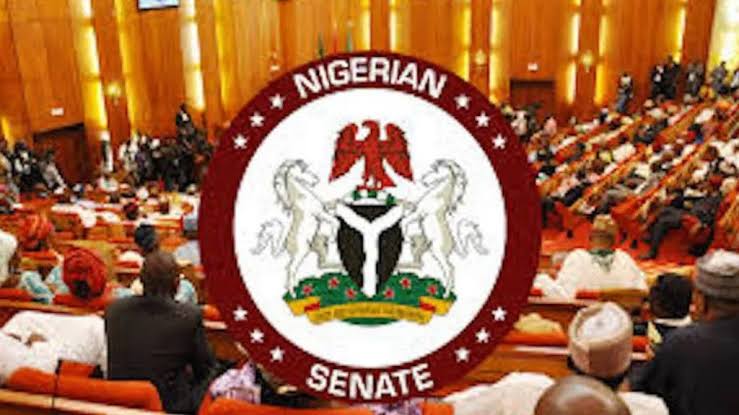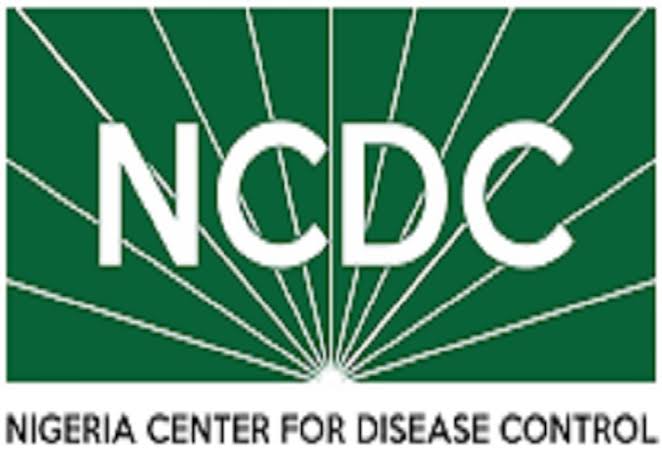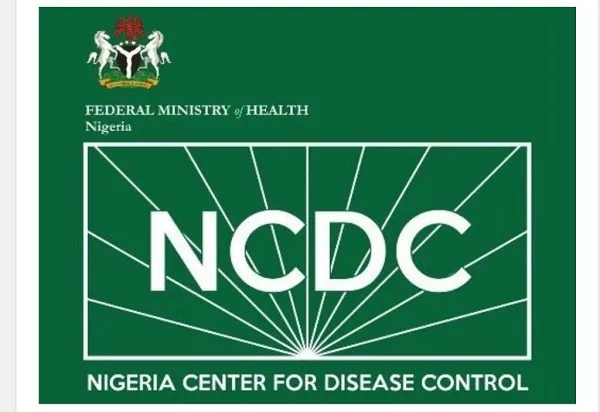The bill seeking the establishment of North Central Development Commission (NCDC), being sponsored by the senator representing Benue South Senatorial District and Senate Minority Leader, Comrade Abba Moro and co-sponsored by all the senators from North Central, on Wednesday, passed Second Reading on the floor of the senate.
The bill, which passed First Reading on the 5th of October, 2023, was first sponsored in the 9th Senate by Senator Moro where it passed First and Second Readings but could not get presidential assent before the expiration of the 9th Senate.
In his lead debate, the Senate Minority Leader said the Commission, when established would be saddled with the responsibility of receiving and managing funds from the federal government and donors for the resettlement, rehabilitation, integration and reconstruction of roads, houses and business premises of victims of flood and farmers/herders clashes, communal clashes, construction of large format drainage systems, dredging of rivers Niger and Benue to control flood and incidental matters, as well as tackling the menace of poverty, illiteracy and other related environmental or developmental challenges facing the North Central Nigeria.
The Lead debate reads;
“Mr. President, Distinguished colleagues.
“May I humbly seek your leave to lead the debate on this very important Bill.
“Mr. President, Distinguished Colleagues, the North Central Zone of Nigeria, in no particular order, comprises the following geopolitical States of the Federation; Kogi, Niger, Benue, Kwara, Plateau, Nasarawa and the Federal Capital Territory, Abuja.
“Over the past years, Mr. President, Distinguished Colleagues, the North Central Zone of Nigeria has been devastated and left in bollix by the noxious antics of terrorists, incidents of flood and erosion, insurgency, kidnapping, herder/farmer clashes, poverty, high rate of illiteracy, to mention but a few.
“The Zone is blessed with several mineral resources that can boost the economy of Nigeria if properly harnessed. However, because of the breeding aforementioned, the North Central Zone is handicapped and cannot do much in this regard.
“May I mention here, Mr. President, that the North Central Zone of Nigeria hosts two of West Africa’s great rivers;(a) The River Niger and (b) The River Benue, which flows into Nigeria from The Republic of Cameroon. The two rivers meet in North central Nigeria and flow as one river on to the Atlantic Ocean. However, the presence of these two rivers has made flood a perennial challenge in the region with increasing intensity every year, leaving not just the North Central Zone but the entire Country with great losses and trauma.
“Mr. President, Distinguished Colleagues, according to statistics from the Nigerian Meteorological Agency, In 2012 and very recently, devastating flooding forced two million Nigerians from their homes and over 363 people died in Plateau, Benue, Niger, Nasarawa and Kogi states.
“Between 2016 and 2023, more than 92,000 people were displaced and over 578 died from incidents of flood in Benue, Kogi, Niger and Nasarawa States, and other parts of Nigeria.
“Annually, Mr. President, Distinguished Colleagues, hundreds of thousands of acres of farmlands are damaged in the North Central Zone of Nigeria where the people are largely agrarian as a result of flood, and this happens, Mr. President, whenever there is a heavy precipitation upstream on the Benue and Niger Rivers. On the Benue River, the main problem is Lagdo Dam in Cameroon, which usually causes the river to swell when water is released. Flood has caused a lot of damage to the North Central Zone. In Agatu, Benue state, farmers continue to lose their crops and farmland to flood and erosion. This is applicable to states like Niger, Nasarawa and Plateau, which have suffered loses and trauma because of flood and erosion.
“Mr. President, Distinguished Colleagues, it is no longer news that over the years, herder/farmer clashes in North Central Nigeria, especially in Benue State, have continuously made headlines. Consequently, infrastructure ranging from places of worship, roads, hospitals, schools, houses, recreational centres, etc, have been left tattered, shattered and pierced by bullets. Women, children, pregnant women and in fact the entire population is a victim of the atrocities perpetrated by suspected herders and bandits in the North Central Zone of Nigeria. Even animals and the environment are not spared the chaos and conundrum imparted on the Zone by the perpetrators of these unwholesome acts.
“Mr President, Distinguished Colleagues, between February 24, 2016 and January 2024, rural dwellers in 45 villages of Agatu LGA were awakened by sound of gunshots and flicks of matchets as suspected militias swept into the area unleashing an orgy of violence. The unfortunate incident left, in its wake, more than 800 persons dead, among which were children and women, with more than 59,000 persons displaced from their ancestral homes. The displaced communities have been scattered with many seeking refuge in various Internally Displaced Persons (IDPs) camps scattered across Benue and Nasarawa states.
“Mr. President, Distinguished Colleagues, this Bill seeks, therefore, to; establish the North Central Development Commission (NCDC) saddled with the responsibility of receiving and managing funds allocated by the Federal Government and Donors (International and Local Donors) for the resettlement, rehabilitation, integration and reconstruction of roads, houses, farmlands and business premises affected by flood, erosion and farmer/herder clashes, terrorist activities, construction of large format drainage systems, dredging of rivers Benue and Niger to control flood, erosion and other incidental matters, as well as tackling the menace of poverty, illiteracy and other related environmental and developmental challenges in the North Central Nigeria.
“Mr President, Distinguished Colleagues, we all know the bond and attachment a man has with his ancestral home, and the psychological effects of being displaced from same. The funds allocated by the Federal Government and Donors (Local and International) will be used to rehabilitate displaced persons, and to indeminify them to their former economic status.
“Recent advocacy has centered on the need to make Nigeria’s geopolitical zones centers of development, as intervening centers of development between the states and the Federal government. It is our hope that the aggregate of developments via the instrument of Zonal Development commissions will make Nigeria stronger and greater again. Mr President, unbundling the federal government now has become an imperative need given the development inertia of most states and the near emasculation of local government councils in Nigeria.
“Mr. President, Distinguished Colleagues, may I mention that this Bill was actually initiated by my humble self in the 9th Senate , passed all necessary legislative processes and got a resounding support from every quarter of the nation. However, the Bill was unable to get to the presidency for further necessary action before the end of the 9th Senate.
“Today, Mr President, Distinguished Colleagues, in the 10th Senate this Bill is co-sponsored by all senators from North Central Zone across party lines.
“Mr. President, Distinguished Colleagues, I humbly urge you all to support this Bill for the Establishment of the North Central Development Commission (NCDC) and pass it appropriately for a second reading for equity, fairness and the development of our country.
“Thank you all for your kind audience.”
The Senate President, Senator Godswill Akpabio, in his remarks thanked Senator Moro and all the co-sponsors of the bill for sponsoring the all-important bill. He said development in any part of the country was development for all Nigerians. He agreed with the sponsors of the bill that North Central deserved a development commission to address the myriads of challenges confronting the region.
The bill was refered to the committee on Special Duties to report back to the Senate within four weeks.

![Tinubu approves new leadership in NCDC, re-appoints NAFDAC DG [See full appointments]](https://thenewsguru.ng/wp-content/uploads/2023/05/Tinubu-President.jpg)





